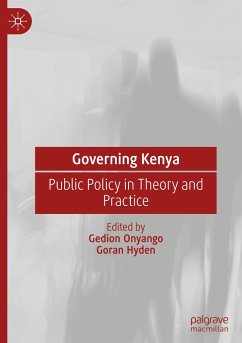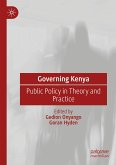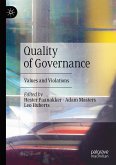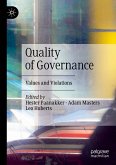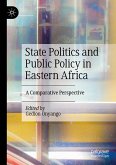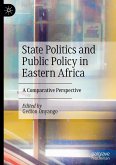This book is authored by some of the renowned scholars in Africa who take on the task to understand how Kenya is governed in this century from a public policy perspective. The book's public policy approach addresses three general and pertinent questions: (1) how are policies made in a political context where change is called for, but institutional legacies tend to stand in the way? (2) how are power and authority shared among institutional actors in government and society? and, (3) how effective is policymaking at a time when policy problems are becoming increasingly complex and involving multiple stakeholders in Africa? This book provides an updated and relevant foundation for teaching policy, politics and administration in Kenya. It is also a useful guide for politicians, the civil society, and businesses with an interest in how Kenya is governed. Furthermore, it addresses issues of comparability: how does the Kenyan case fit into a wider African context of policymaking?
'This volume is a major contribution to comparative policy analysis by focusing on the policy processes in Kenya, a country undergoing modernization of its economic and political institutions. Written by experts with a keen eye for the commonalities and differences the country shares with other nations, it covers a range of topics like the role of experts and politicians in policymaking, the nature of public accountability, the impact of social media on policy actors, and the challenges of teaching policy studies in the country. As a first comprehensive study of an African nation, Governing Kenya will remain a key text for years to come'.
-Michael Howlett, Burnaby Mountain Chair of Political Science, Simon Fraser University, Canada
'A superb example of development scholarship which sets aside 'best practice' nostrums and focuses on governance challenges specific to time and place while holding on to a comparative perspective. Useful to scholars and practitioners not only in Kenya but across developing areas. I strongly recommend it!'
-Brian Levy teaches at the School of Advanced International Studies, Johns Hopkins University, USA, and the University of Cape Town, South Africa.
'This book is an exploration of important deliberations - of interest for those of us interested in deepening the understanding of public policy theories and their application within a specific African setting'.
-Wilson Muna, Lecturer of Public Policy, Kenyatta University, Nairobi, Kenya
'This collection of think pieces on public policy in Kenya gives the reader theoretical and practical hooks critical to the analysis of the implementation of the sovereign policy document in Kenya, the 2010 Constitution'.
-Willy Mutunga, Chief Justice & President of the Supreme Court, Republic of Kenya, 2011-2016
'Governing Kenya provides acomprehensive analysis of public policymaking in Kenya. The book integrates public policy theory with extensive empirical examples to provide a valuable portrait of the political and economic influences on policy choices in this important African country. The editors have brought together a group of significant scholars to produce an invaluable contribution to the literature on public policy in Africa'.
-B. Guy Peters, Maurice Folk Professor of American Government, University of Pittsburgh, USA
'This volume is a major contribution to comparative policy analysis by focusing on the policy processes in Kenya, a country undergoing modernization of its economic and political institutions. Written by experts with a keen eye for the commonalities and differences the country shares with other nations, it covers a range of topics like the role of experts and politicians in policymaking, the nature of public accountability, the impact of social media on policy actors, and the challenges of teaching policy studies in the country. As a first comprehensive study of an African nation, Governing Kenya will remain a key text for years to come'.
-Michael Howlett, Burnaby Mountain Chair of Political Science, Simon Fraser University, Canada
'A superb example of development scholarship which sets aside 'best practice' nostrums and focuses on governance challenges specific to time and place while holding on to a comparative perspective. Useful to scholars and practitioners not only in Kenya but across developing areas. I strongly recommend it!'
-Brian Levy teaches at the School of Advanced International Studies, Johns Hopkins University, USA, and the University of Cape Town, South Africa.
'This book is an exploration of important deliberations - of interest for those of us interested in deepening the understanding of public policy theories and their application within a specific African setting'.
-Wilson Muna, Lecturer of Public Policy, Kenyatta University, Nairobi, Kenya
'This collection of think pieces on public policy in Kenya gives the reader theoretical and practical hooks critical to the analysis of the implementation of the sovereign policy document in Kenya, the 2010 Constitution'.
-Willy Mutunga, Chief Justice & President of the Supreme Court, Republic of Kenya, 2011-2016
'Governing Kenya provides acomprehensive analysis of public policymaking in Kenya. The book integrates public policy theory with extensive empirical examples to provide a valuable portrait of the political and economic influences on policy choices in this important African country. The editors have brought together a group of significant scholars to produce an invaluable contribution to the literature on public policy in Africa'.
-B. Guy Peters, Maurice Folk Professor of American Government, University of Pittsburgh, USA

